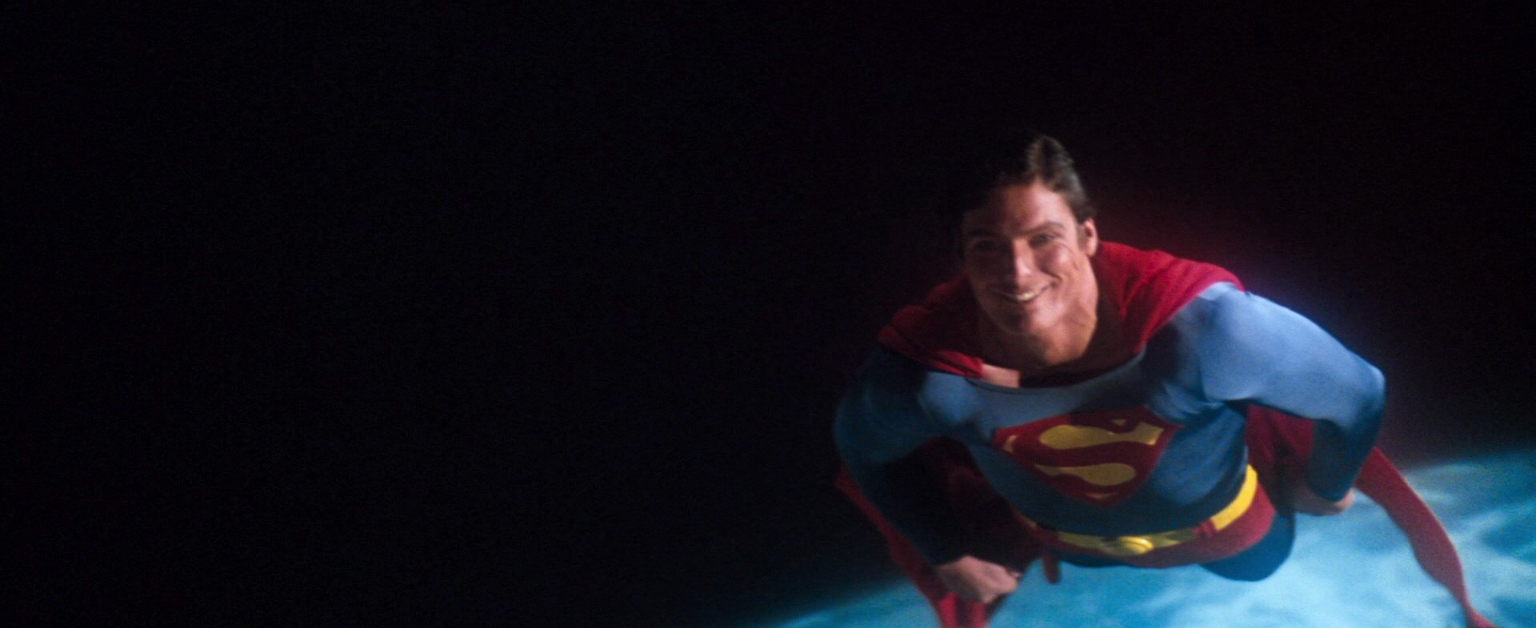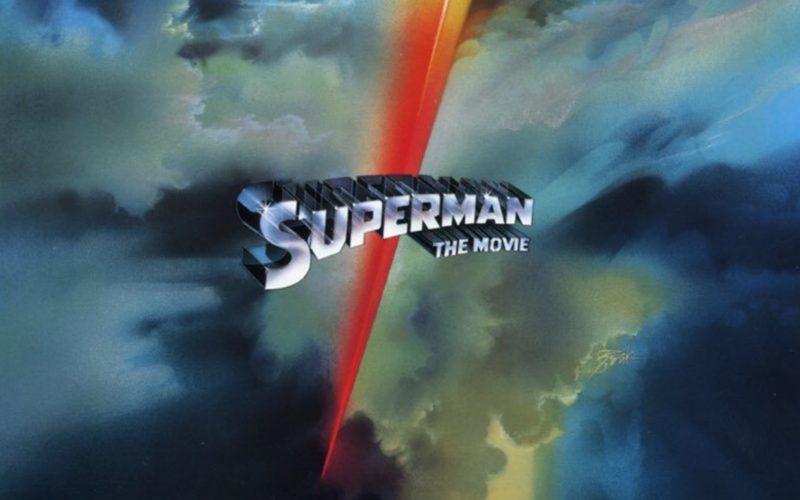Superman (1978).
You WILL believe…
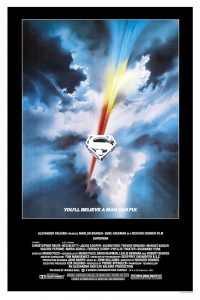 We live in what can justifiably be called the age of the superhero movie. Since the dawn of this millennium, Hollywood has been flooded with innumerable entries into what must rank as the most rapidly growing genre in film. Whilst many of these films are great pieces of entertainment, some are simply cookie-cutter fodder based on beloved franchises but often made with little care or regard for the source material and its fans, and are merely examples of greedy studios cashing in on the probable finite life of this now overstuffed genre.
We live in what can justifiably be called the age of the superhero movie. Since the dawn of this millennium, Hollywood has been flooded with innumerable entries into what must rank as the most rapidly growing genre in film. Whilst many of these films are great pieces of entertainment, some are simply cookie-cutter fodder based on beloved franchises but often made with little care or regard for the source material and its fans, and are merely examples of greedy studios cashing in on the probable finite life of this now overstuffed genre.
Way back in the latter half of the 1970’s, films based on comic books were almost unheard of and the comic book industry itself had little if any ties to Hollywood. When the father/son producing partnership of Alexander and Ilya Salkind and Ilya’s childhood friend, Pierre Spengler conceived of the idea of bringing a big budget version of DC’s Superman to the big screen, the project was in no way the guaranteed money-maker that such a film would be these days. Superhero films were a niche genre and lacked the credibility they now have.
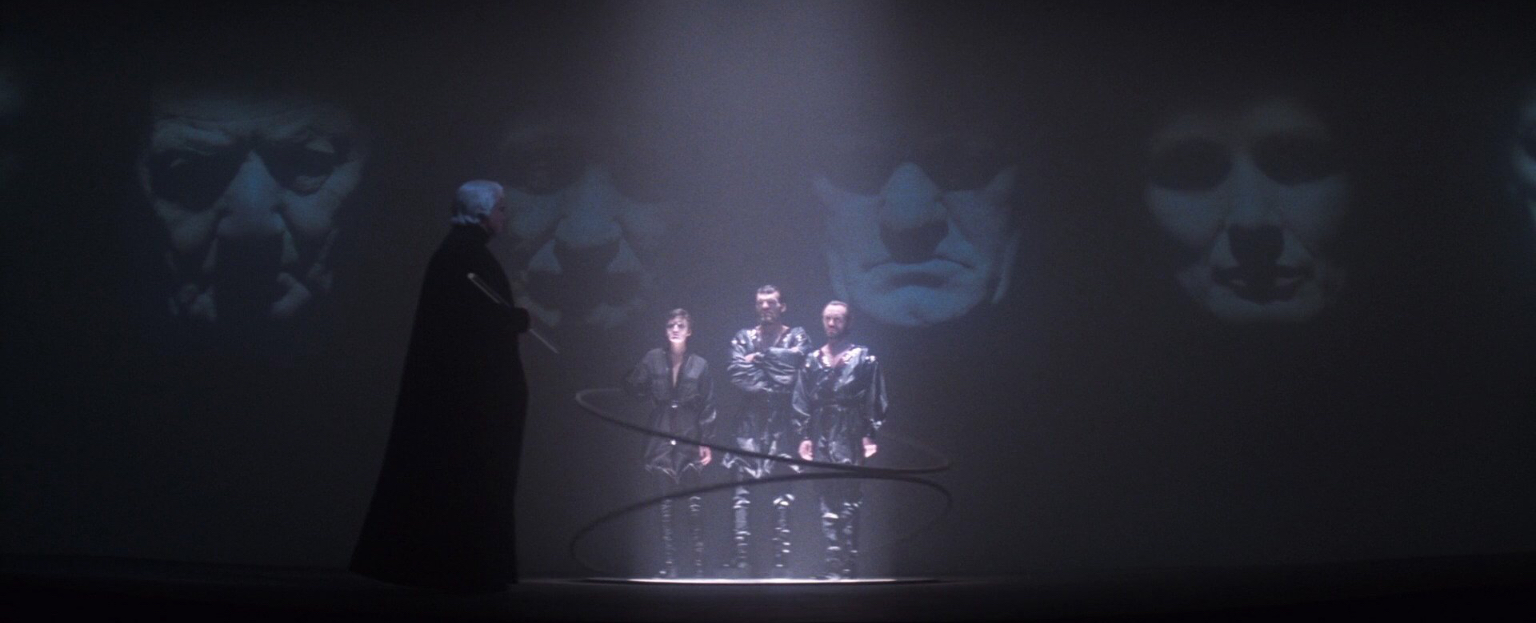
What made the task even more of an undertaking was that the Salkinds and director Richard Donner would shoot both Superman and its first sequel, Superman II back-to-back in order to minimise costs. The main risk here was that if the first film tanked then the sequel’s success would be highly unlikely.
Robert Redford, Clint Eastwood and James Caan were all considered for the iconic title role but all three actors turned it down. The Salkinds and director Richard Donner instead cast a virtual unknown in Christopher Reeve, who whilst tall enough, lacked the muscular build the character required. Having given an extremely convincing screen test, he was picked for the role and underwent an intense training regime and bulked up from 170lbs to 212lbs during the pre-production period.
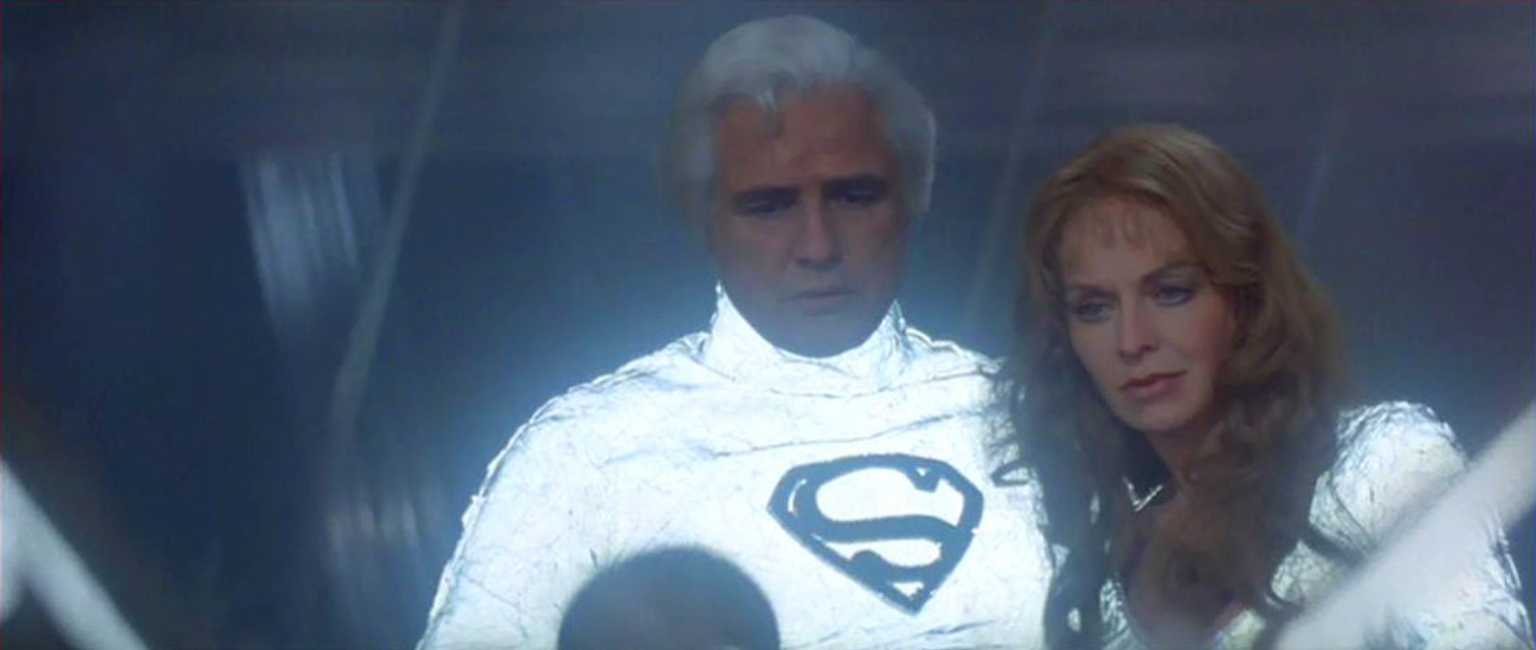
“He will not be alone… he will never be alone.”
For the role of Superman’s biological father the filmmakers cast Marlon Brando who received a then record breaking fee of $3.7 million plus a percentage of the film’s profits for a meagre 12 days of shooting. Brando refused to memorise his lines and would regularly film his scenes whilst reading his dialogue from cue cards. For the role of Superman’s nemesis, Lex Luthor, another in-demand actor was cast in Gene Hackman. Both Hackman and Brando’s scenes were shot first in order to free them up for other films they had scheduled.
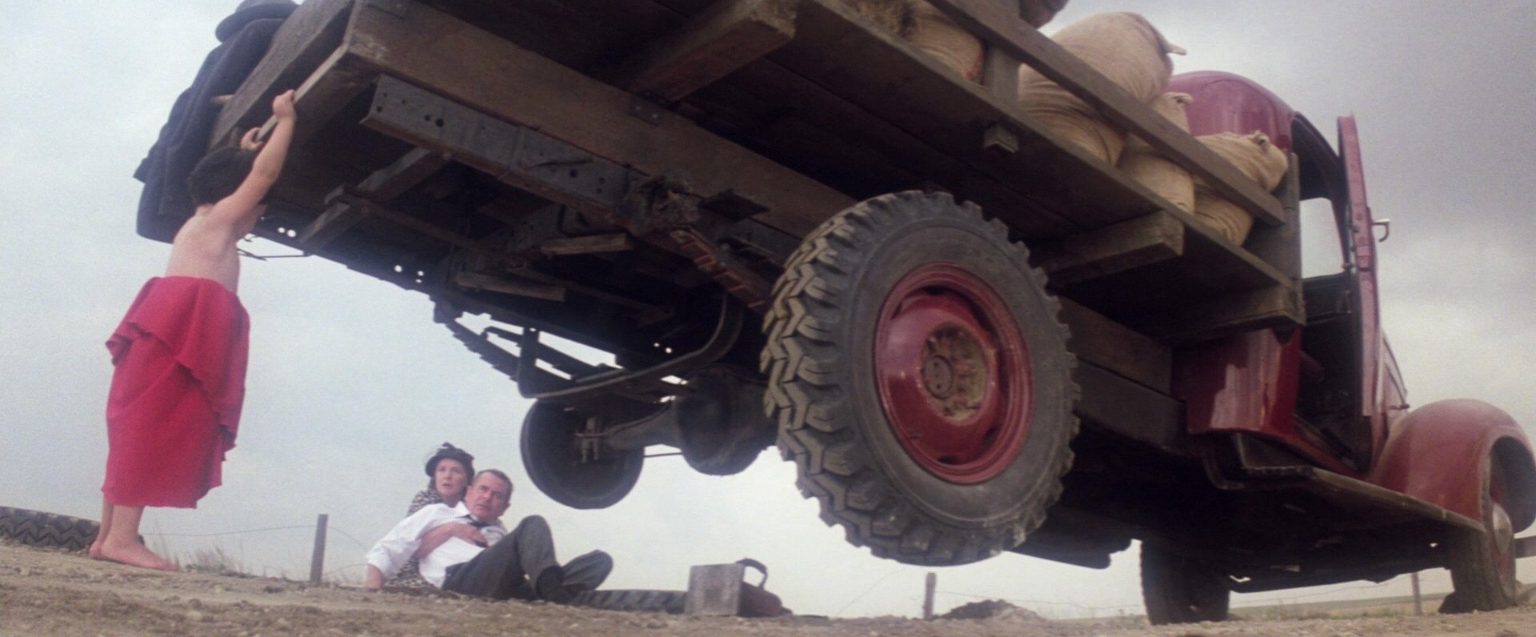
The production of the film, and ultimately that of its sequel, would be far from smooth. Whilst the first film made it into the can, relatively speaking, without much ado, its sequel would be beset with problems, none greater than the Salkind’s sacking of Donner after he publicly criticised them. Brando himself would later sue the Salkinds for what he claimed was them not paying him his agreed share of the first film’s profits and the footage he’d shot for the sequel was therefore not used. That however, is a story for another article.
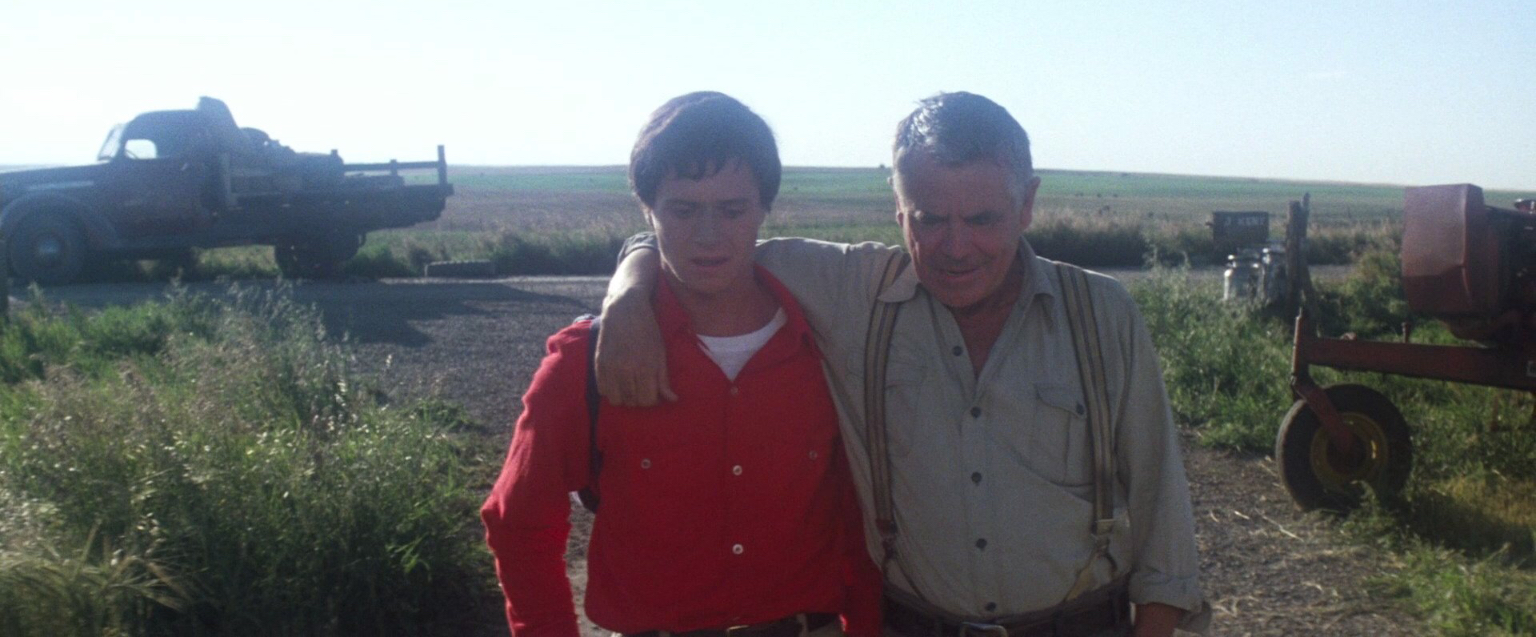
“And there’s one thing I do know son and that is you are here for a reason.”
Made on a then huge budget of $55,000,000, Superman: The Movie was released in December of 1978 and would go on to make over $289,000,000 worldwide making it a worthwhile venture for the Salkinds after all. Looking back at Superman on it’s 40th anniversary and with a wealth of technically dazzling modern day equivalents to compare it to, I was concerned that it might not hold up having not seen it for over a decade. Whilst it does have some hokey and at times almost cringeworthy moments, on the whole it remains the defining superhero movie that has undoubtedly been influential on many of the comic book to film adaptations that have followed in the decades since.
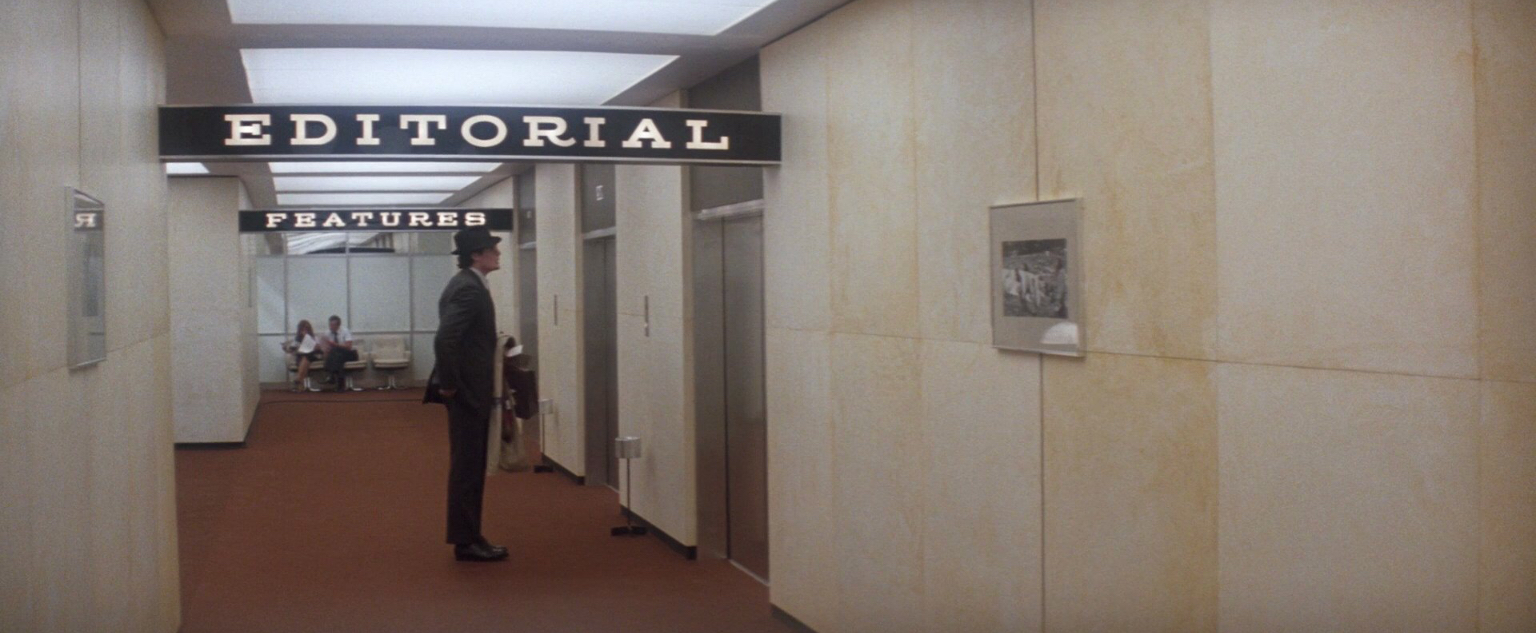 Given the almost impatient nature of filmgoers, and in turn filmmakers these days who want to dive right into the action it’s nice to see an opening credits scene that takes its time, some would rightly argue too much time perhaps. Following this we are led into the extended opening on Superman’s home planet of Krypton. What’s so refreshing seeing this now is that this opening scene establishes characters that we’ll see nothing more of in this film but who will later be the main antagonists in the sequel. This forward thinking approach shows that such clever filmmaking isn’t the sole domain of Marvel Studios. Some of the effects in this prologue haven’t aged well but credit to the filmmakers for the time they took to show us the world from which our hero hails, if for no other reason than to give an added layer of depth to the son of Jor-El.
Given the almost impatient nature of filmgoers, and in turn filmmakers these days who want to dive right into the action it’s nice to see an opening credits scene that takes its time, some would rightly argue too much time perhaps. Following this we are led into the extended opening on Superman’s home planet of Krypton. What’s so refreshing seeing this now is that this opening scene establishes characters that we’ll see nothing more of in this film but who will later be the main antagonists in the sequel. This forward thinking approach shows that such clever filmmaking isn’t the sole domain of Marvel Studios. Some of the effects in this prologue haven’t aged well but credit to the filmmakers for the time they took to show us the world from which our hero hails, if for no other reason than to give an added layer of depth to the son of Jor-El.
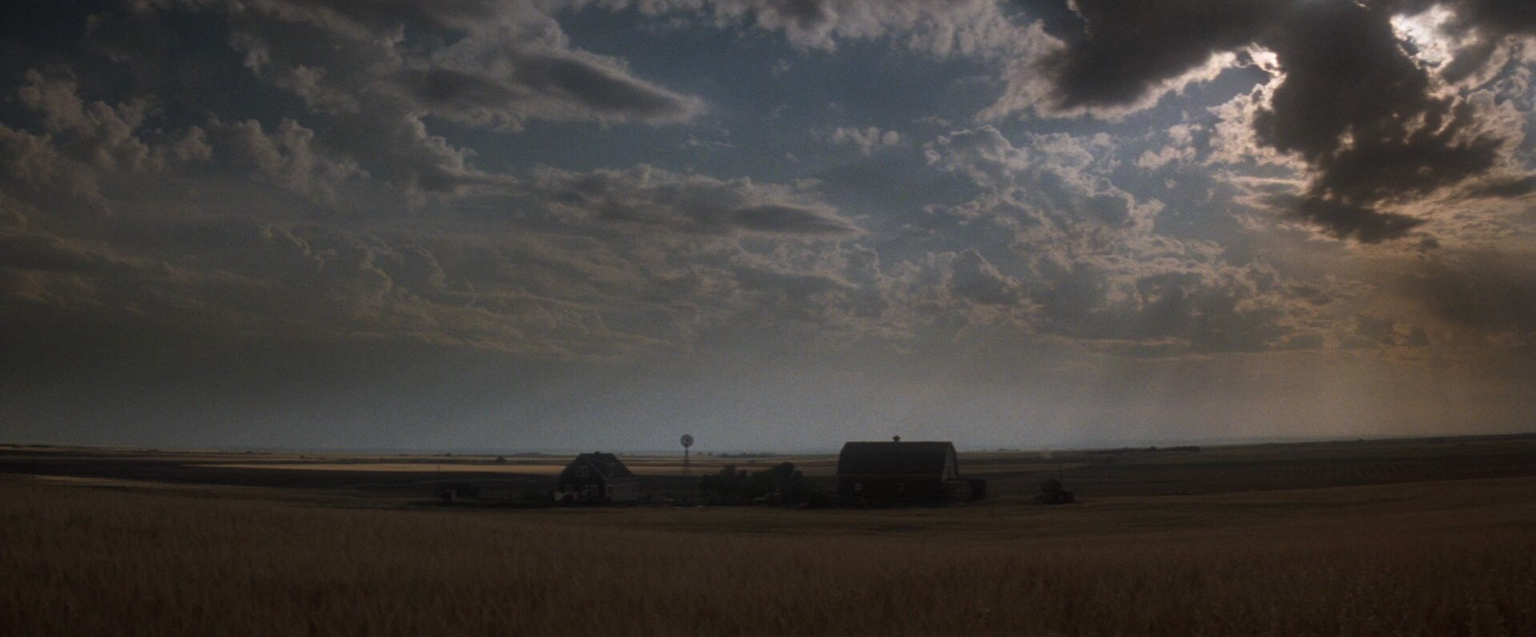 “All those things I can do, all those powers and I couldn’t even save him.”
“All those things I can do, all those powers and I couldn’t even save him.”
After the destruction of Krypton, young Kal-El crashes on Earth. What has always impressed me about Donner’s film is that he takes his time to establish Superman’s origin and early life on Earth. The carefully measured pace of these early scenes shows a young Clark Kent, played by Jeff East. East wore a prosthetic nose and his lines were dubbed over in post by Reeve to maintain character continuity. We see the strong bond Clark has with his adoptive human parents and the death of his father, Jonathan Kent (the wonderful Glenn Ford) is arguably the film’s most moving scene.
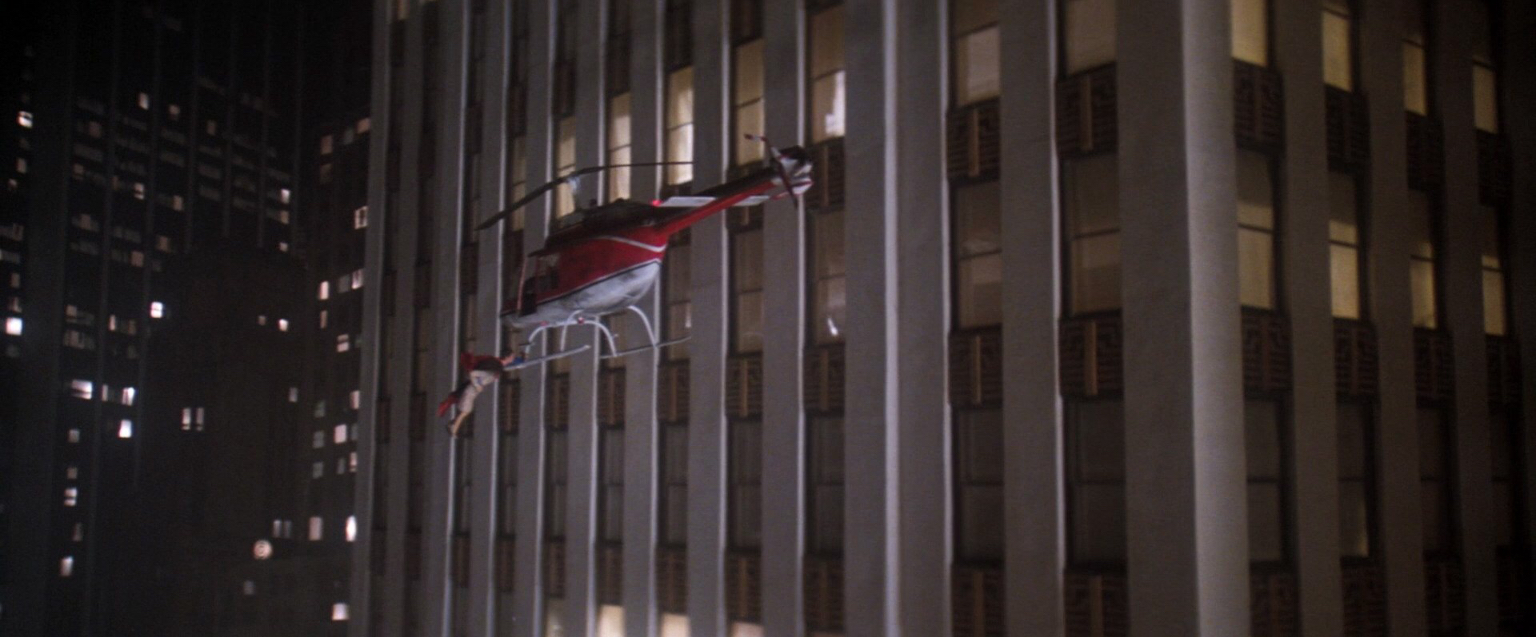
We don’t see an older Clark Kent don the famous red and blue suit and take flight until 50 minutes into the film but the time Donner takes to establish the character is time well spent. This first act has a romantic tone and feel that’s reminiscent of Hollywood’s Golden Age and the second act where an adult Clark Kent moves to Metropolis takes a different tone albeit a change in tone that isn’t too jarring. We meet the staff at the Daily Planet who will become Clark’s new family. Daily Planet reporter, Lois Lane is played by Margot Kidder and she is absolutely perfect as the feisty news hound that will become the object of Superman’s affections.
The supporting cast is equally strong; Jackie Cooper, Marc McClure, Ned Beatty, Valerie Perrine, Terrance Stamp and the aforementioned Glenn Ford are all superb. The big hitters, Brando and Hackman are outstanding. In the brief time we see Brando he nails the role with a commanding performance, the gravitas of his delivery of his dialogue is done with the utmost pathos and sincerity. Hackman takes a much less serious approach and much of the film’s humour revolves around Luthor and his bumbling henchman, Otis, played to perfection by Ned Beatty.

Unfortunately some of those very same scenes involving Lex Luthor, Otis and the delightful Miss Teschmacher do seem to take up too much of the film’s runtime, time that could be better spent showing more of our titular hero doing what he does best. Make no mistake, the true star of this film is Christopher Reeve. His chemistry with Kidder is a joy to behold and he completely nails the dual roles of the bumbling Kent and his near invincible alter-ego better than any other actor who has ever donned a cape or spandex suit. Reeve brings a charm and warmth to the role that truly sells the wholesome nature of the character. Every facet of his performance, be it in his physicality, his delivery, the subtle quirks he gives both characters, he just completely inhabits the role like no other actor in a comic book or superhero movie ever has.
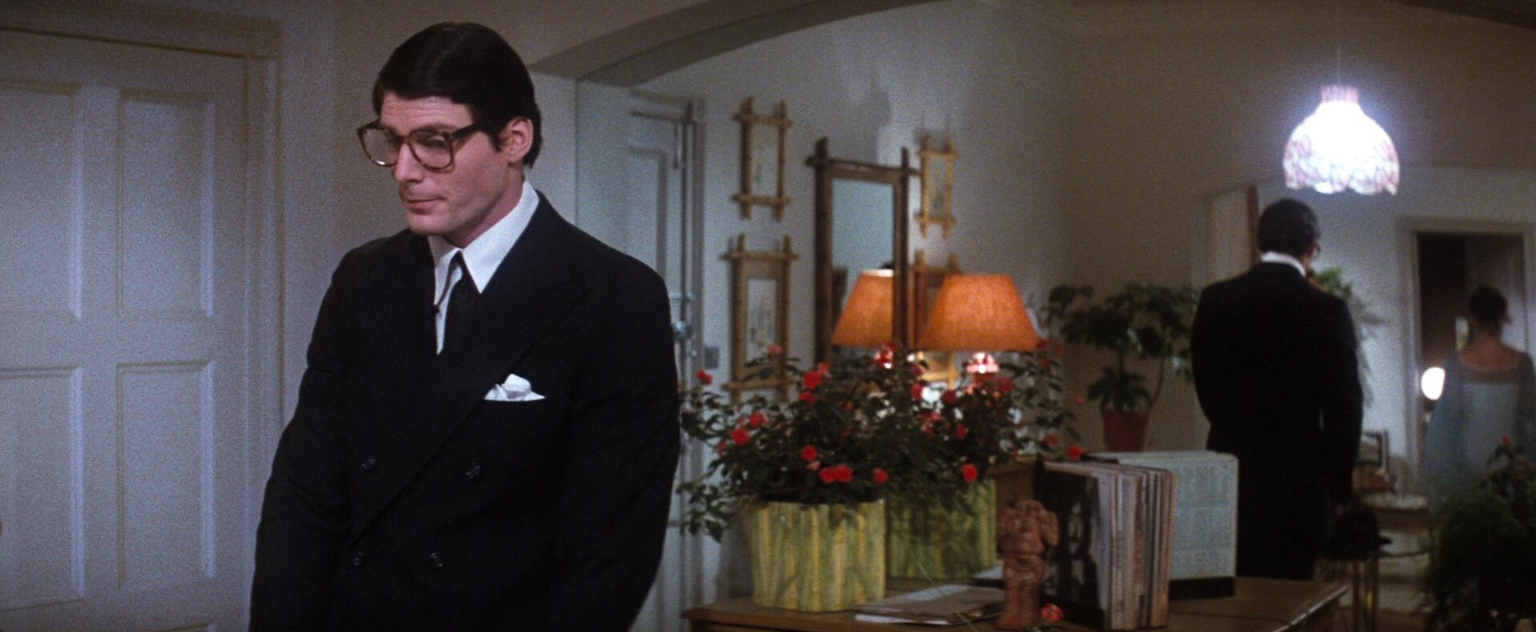
At about the one hour mark Superman unveils himself to a stunned Metropolis and the change in character from harmless and mild mannered nobody to pillar of strength and almost God-like figure is simply joyous. There are facets of his performance that I can scarcely describe as they’re very much a combination of the little physical quirks of his performance like the way he politely says “excuse me” in order to deflect the comments of a stunned onlooker before flying off to rescue Lois Lane from a crashed helicopter. His subsequent answer to Lane’s question of “Who are you” of, “a friend” brings a smile to my face every time I see it. Credit to Reeve for the overwhelming sincerity he brings to a role that could have easily spiralled into hammy parody in the hands of a less invested actor.
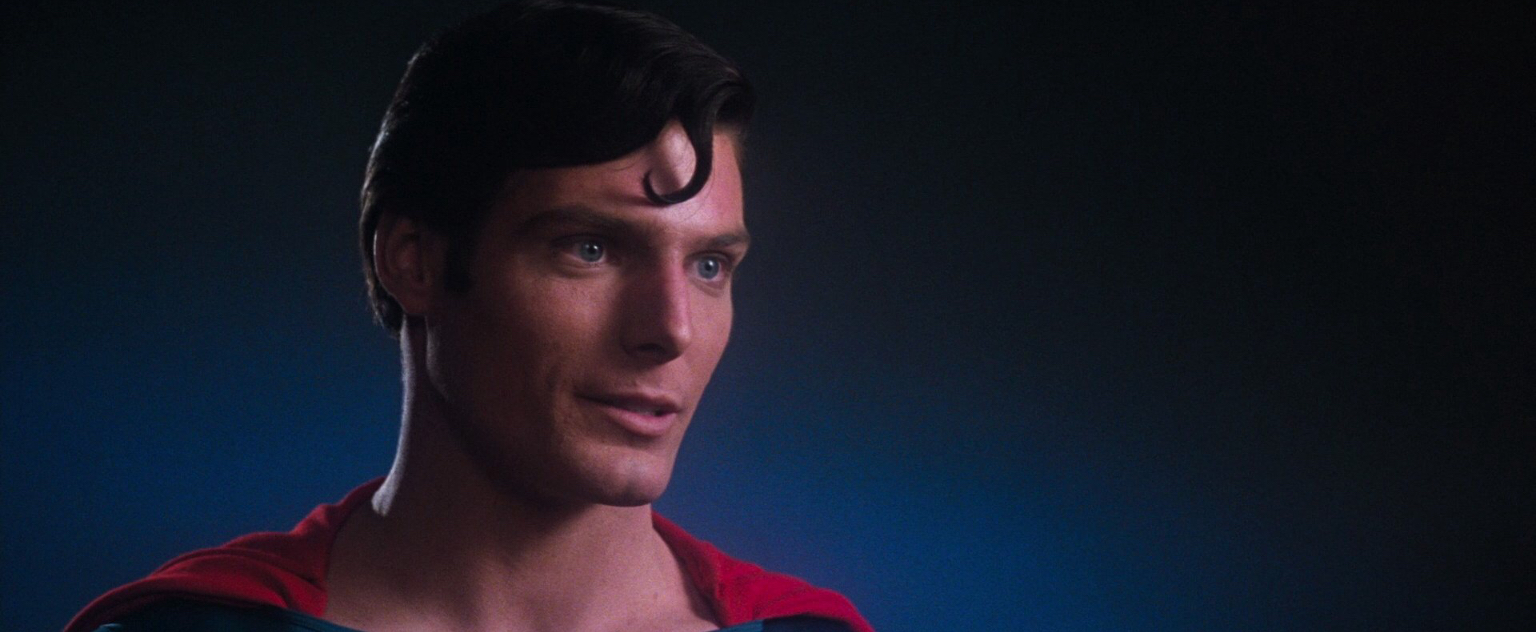
Where the character is also fully sold to the audience is the promise the film’s theatrical poster made of “You’ll believe a man can fly”. In pre-production the Salkinds spent $2 million on special effects tests of the various techniques employed to make Superman defy gravity. Whilst I’m sure that younger viewers weened on a strict diet of flashy CGI will scoff at the effects in Superman, they need to be reminded that this was cutting edge for its time and it’s the physical performance of Reeve that adds immeasurably to the overall illusion. Once you accept that this is a film made 40 years ago, you’ll hopefully appreciate how well the effects have aged.
Superman has a great, often witty script and Donner’s a director who knows his trade as good as any and how to get the best from his cast. The cinematography by Geoffrey Unsworth is fine and replicates a certain 50’s look with warm colours and a definite haze to many of the scenes.
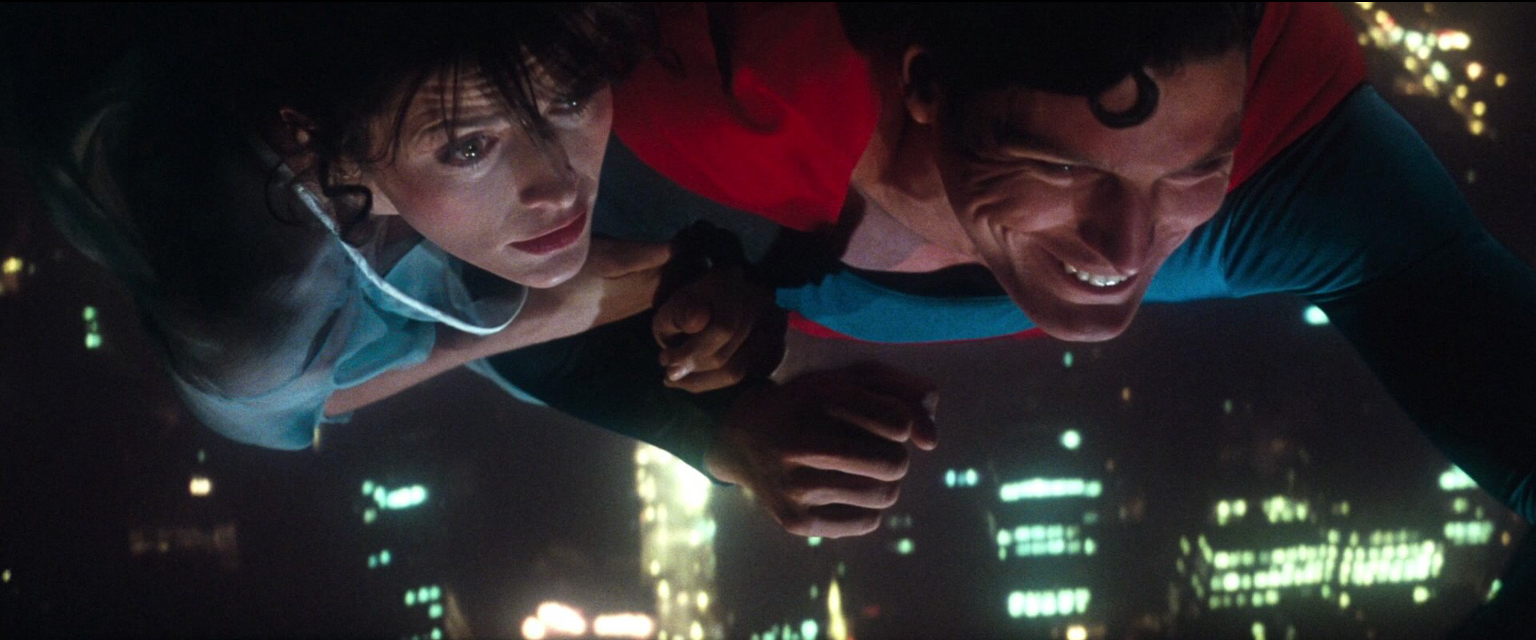
Aside from the aforementioned special effects, the one technical aspect of the film that lifts it head and caped shoulders above its peers is John Williams’ astounding score. Williams is easily one of the most famous and beloved of film composers. His body of work contains some of the most memorable scores in all of moviedom and Superman easily ranks amongst his very best work. From the main theme to the incredible Krypton theme to the more romantic cues it’s all stellar stuff and has become synonymous with the character. Whilst Hans Zimmer did a fine job with the score for Man of Steel, I can’t help but feel that Superman isn’t really Superman without Williams’ iconic music.
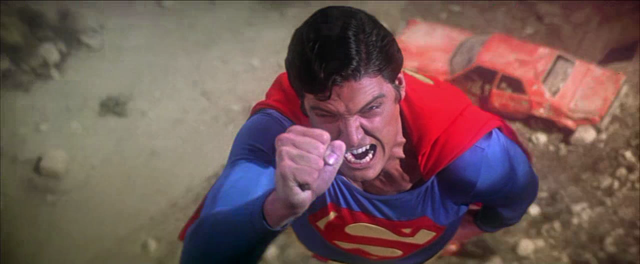
The film does have its faults though. It drags a little in places and some scenes seem a little bit like unwanted fat on the meat. These are mainly scenes involving Luthor’s scheming and whilst his chemistry with Ned Beatty is wonderful, the extended scene of him tampering with the nuclear missiles is one of several that could have been trimmed from the final edit. Luthor’s biggest crime is his tracking down of Kryptonite and his deduction that it would be harmful to Superman. This is a woefully lazy and convenient plot contrivance. How he comes to this conclusion is completely forced for the sake of the plot and makes no sense whatsoever. Also I’ve no doubt that many fans of the comic books would agree that the film goes too far in terms of some of the more overt humour at times.
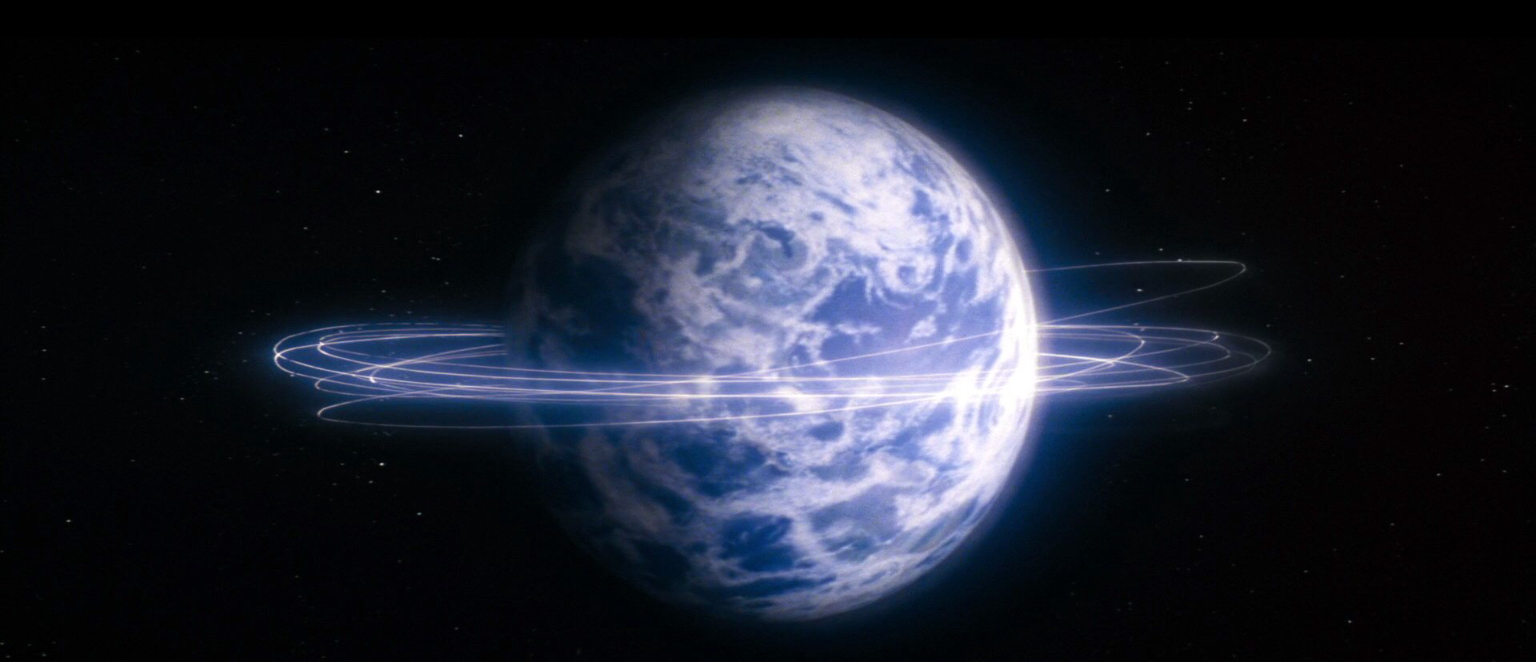 We also have the flying scene with Superman and Lois Lane that should have ended when he let go of her and then caught her. Lois’ ensuing “can you read my mind” rhyming internal monologue is cringeworthy and always pulls me out of the film and I really can’t see why Donner ever thought this was a good idea. Superman turning back time by flying around the Earth and reversing its rotation near the end of the film has always been a point of contention amongst fans. It makes little sense and is a bit contrived but in the context of Superman’s anguish at not being able to save Lois and his subsequent choice to defy Jor-El’s command not to interfere in human history, it gets a pass from me. Just. And the scene of Superman cradling a dead Lois, his gasp as he realises the fragility of this human woman with whom he has fallen in love leading to that scream of utter anguish never fails to move me. It really is an incredible performance from Reeve.
We also have the flying scene with Superman and Lois Lane that should have ended when he let go of her and then caught her. Lois’ ensuing “can you read my mind” rhyming internal monologue is cringeworthy and always pulls me out of the film and I really can’t see why Donner ever thought this was a good idea. Superman turning back time by flying around the Earth and reversing its rotation near the end of the film has always been a point of contention amongst fans. It makes little sense and is a bit contrived but in the context of Superman’s anguish at not being able to save Lois and his subsequent choice to defy Jor-El’s command not to interfere in human history, it gets a pass from me. Just. And the scene of Superman cradling a dead Lois, his gasp as he realises the fragility of this human woman with whom he has fallen in love leading to that scream of utter anguish never fails to move me. It really is an incredible performance from Reeve.
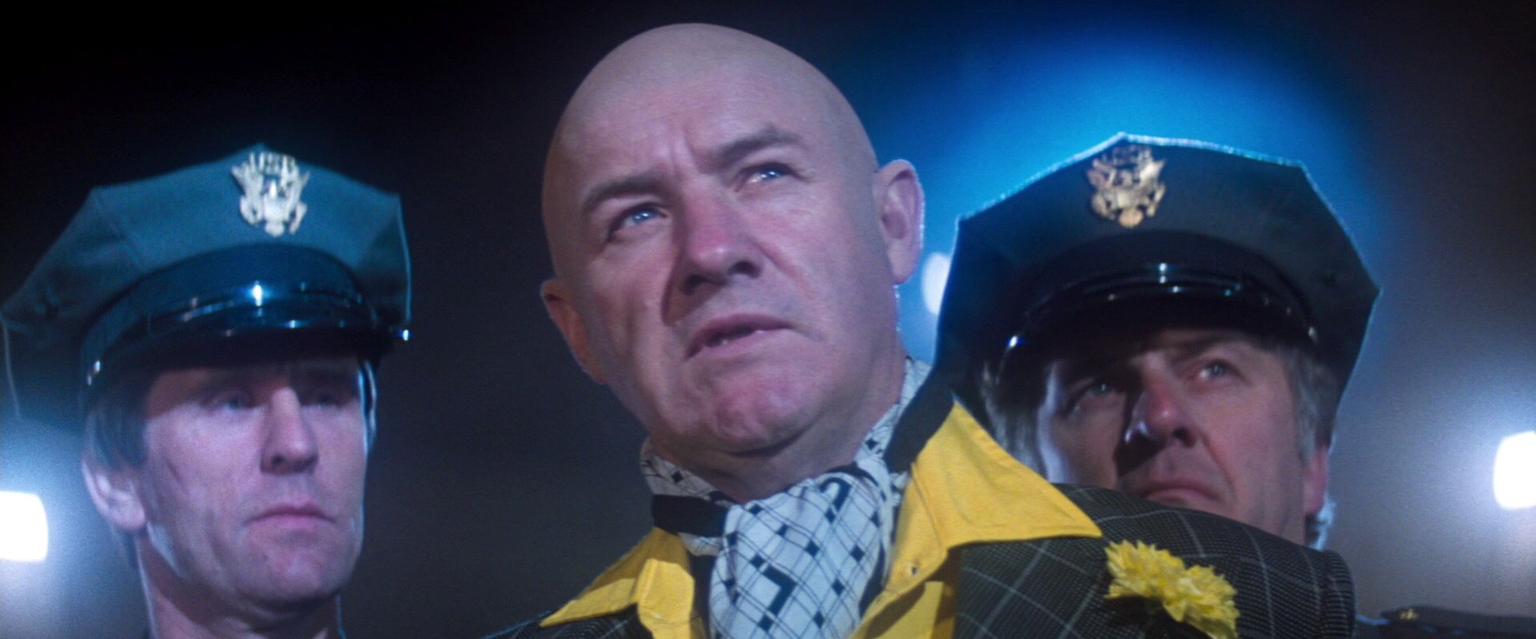
Superman certainly takes a few mis-steps here and there but more than makes up for these elsewhere. It’s a rousing and thoroughly enjoyable superhero film and a fitting adaptation of beloved source material. It has humour, heart, some truly great performances, great effects for its time that still work today, great action set pieces and one of the most iconic scores in film history. Above any of this it has Christopher Reeve, an actor who is as synonymous with his character as any other actor I can think of, one who perfectly encapsulates everything that defines the character that Jerry Siegel and Joe Shuster created so long ago. Reeve was taken from us far too soon and in such tragic circumstances, but out of the tragedy of the paralysis he suffered he became a role model to us all of courage, strength and determination in the face of adversity. Reeve will forever be loved by fans and immortalised by the role that would come to define his career. He truly delivered on the promise of that tagline and made us all believe that a man really can fly.
Film ‘89 Verdict – 9/10
